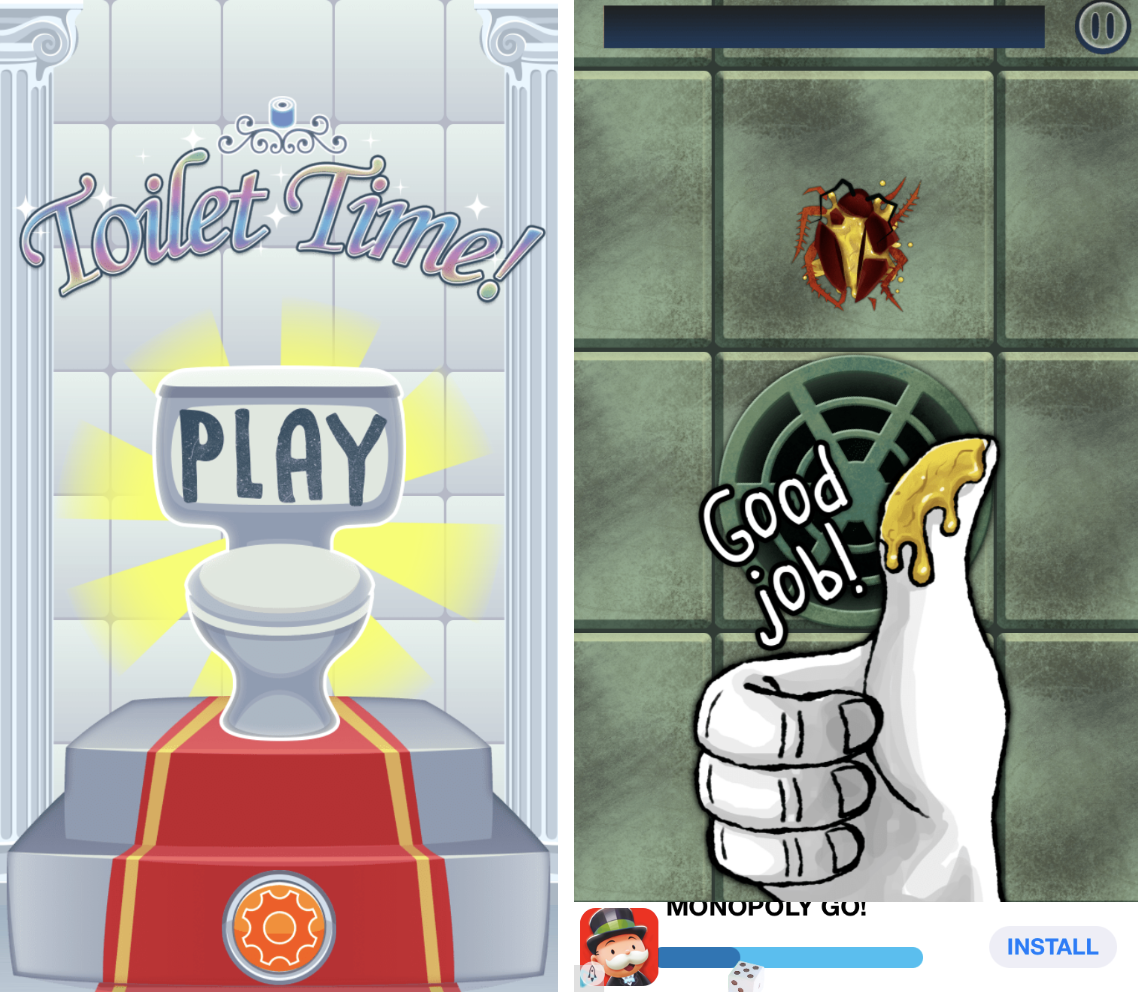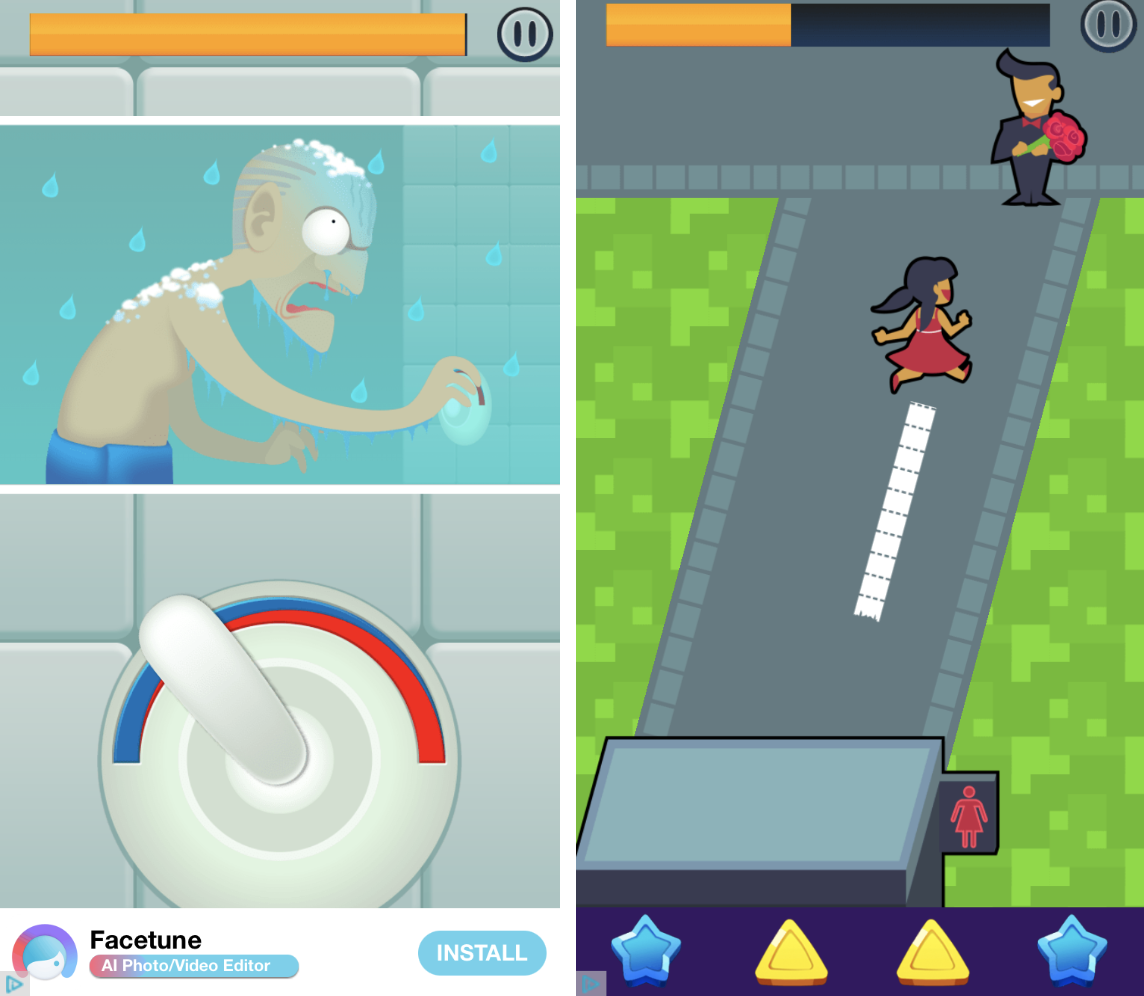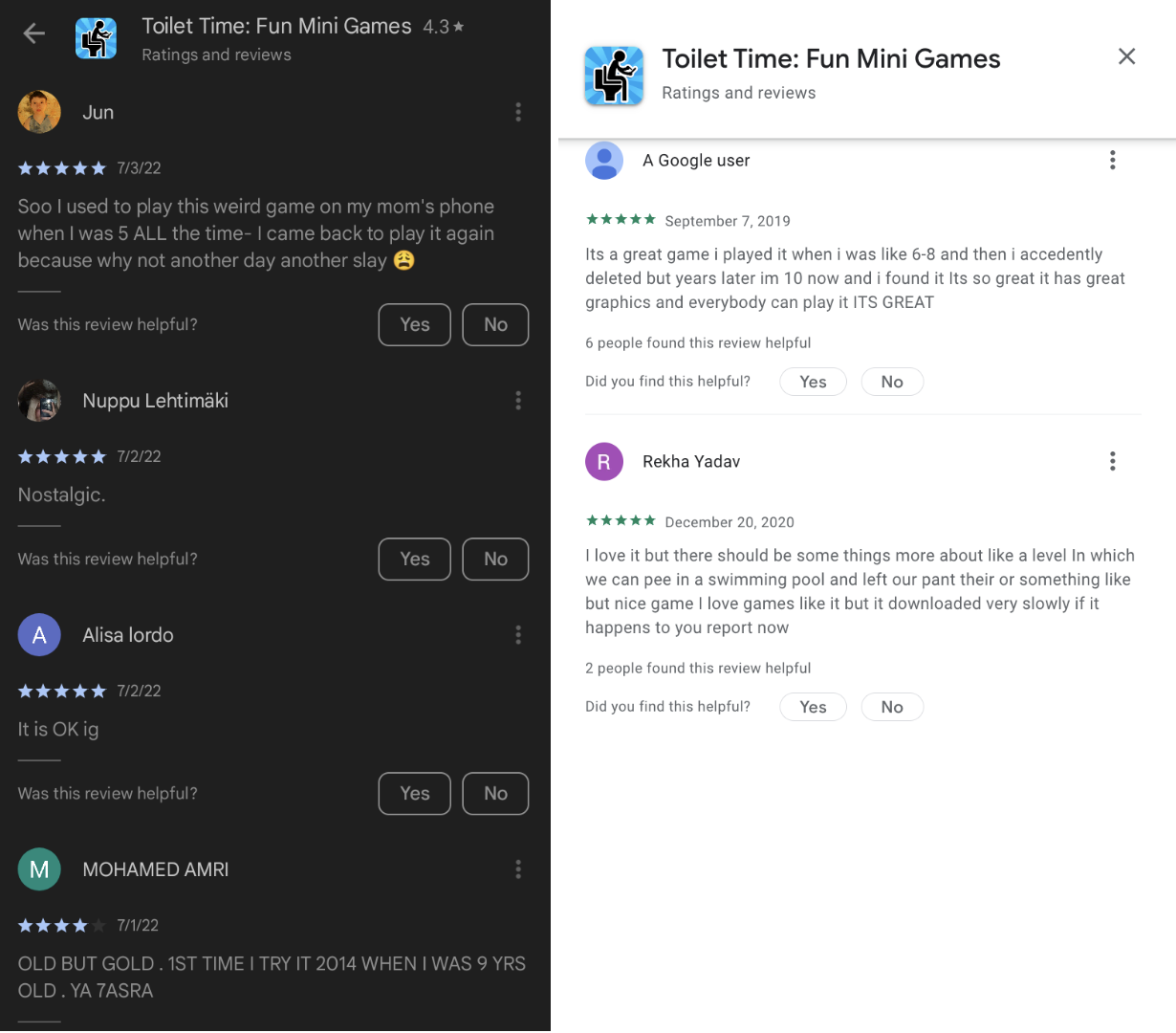
Welcome to Pixalate’s CTV & Mobile App Manual Reviews According to COPPA, a series containing the detailed factors the Trust & Safety Advisory Board educators used to assess an app’s child-directedness.
The educators manually review thousands of mobile apps available in the Google Play & Apple App Stores as well as connected TV (CTV) apps from the Roku Channel Store and Amazon Fire TV App Store using the COPPA Rule factors shown below & make those results available to the public at ratings.pixalate.com.
This post takes a look at a game which is available from the Google Play & Apple App Stores. Our reviewer discusses how the subjective factors set forth in the COPPA Rule apply to the app and factor into the reviewer's determination as to whether the app is child-directed or general audience (i.e., it is not targeting children).
The teacher will indicate the factors they relied upon in their assessment using the 10 factors shown below that reflect the 10 child-directed factors in the COPPA Rule.

Toilet Time is an app that houses a series of mini-games. Each game is just a few seconds long, with the implication being that the player can play while using the bathroom. The mini-games are simple tasks such as squishing bugs, unrolling toilet paper, washing hands, and finding vacant toilet stalls. After completing one mini-task, a new one is presented. New tasks will keep appearing as long as the player keeps completing tasks before the timer runs out.
The game is incentivized with goals of the number of mini-games to be completed in a row. These are personal best-type goals that increase after completing the goal. After completing a goal the player can earn keys and the opportunity to plunge a toilet. The keys unlock ‘museum’ items, such as an ‘eco-loo’ or the ‘Egyptian urinal.’ The plunger is a mini-game in itself, allowing the player to plunge into a toilet and pull out collectible items. These items are then displayed on a shelf within the game.
and
Each of the tasks is animated in a way that would appeal to children and adults alike. Animations such as cockroaches crawling out of a drain or a girl with toilet paper stuck to her shoe are common within the mini-tasks. The exaggerated animations add to the humor of the mini-tasks. The overall visual content is also very appealing to children, with many bright colors and images of toilets on various screens.
There is limited language on screen, with most instructions being single words like “squish” or “adjust.” Most games are intuitive and can be figured out without written instructions, adding to the appeal of younger children.
Classical orchestra music plays in the background, very much at odds with the subject matter and visual content of the game. This adds a bit of ironic humor to the game that both children and adults would appreciate. There are plenty of accompanying sound effects, such as toilets flushing. Video game types of dinging and boinging noises are also present in many of the games.
Banner ads are consistently present along the bottom of each mini-game. There are also optional video advertisements that can be watched to increase rewards or extend the mini-game streak to continue working towards the goal. The banner and video ads both tend to be for general audiences and mixed audience apps, such as dating apps and games for a variety of age groups.
and
This app is rated 9+ in the Apple App Store, T in the US Google Play Store, and PEGI 12 in European Google Play Stores. Despite ratings that skew more towards teens, the language in the app description, such as “a range of dumb ways to dally in the restroom” or “a poop game that simply ends with your boredom,” reflects an expectation that younger children will also be interested in this app.
Reviews indicate a mixed audience, with a mix of reviews from kids, teens, and adults. There are many reviews that mention children aged 9-12, but children as young as 5 are mentioned as playing this game.
Privacy
Tapps has both a standard privacy policy and a children’s privacy policy, both of which were last updated on December 5, 2019. The standard policy indicates that some of their apps are for children, but there is no list of which apps are or are not for kids. They indicate that they do not directly collect or share any personal identifying information from children using their apps. They indicate that some third parties, such as advertising networks, may collect some data. They do not detail all the data being collected by third parties, but simply state that their policies and the policies of the third parties they work with are all COPPA compliant.
There is no age gate on Toilet Time, so no way for developers to distinguish between children and adult users.
Screenshots of Toilet Time: Fun Mini Games



Pixalate’s Trust and Safety Advisory Board was created to bring in individuals with experience using child-directed apps in the classroom to review and assess which apps are child-directed. This manual review process serves to quality check Pixalate’s automated review process. See our full methodology for more information.
Disclaimer
This blog post published by Pixalate is available for informational purposes only and is not considered legal advice. By viewing this blog post, the reader understands and agrees that there is no attorney-client relationship between the reader and the blog publisher. The blog should not be used as a substitute for legal advice from a licensed professional attorney in the applicable jurisdiction(s), and readers are urged to consult their own legal counsel on any specific legal questions concerning any specific situation. The content of this blog post reflects Pixalate's opinions with respect to factors that Pixalate believes may be useful to the digital media industry. Pixalate's opinions are just that, opinions, which means that they are neither facts nor guarantees; and this blog post is not intended to impugn the standing or reputation of any entity, person or app, but instead, to report findings pertaining to mobile and Connected TV (CTV) apps.
*By entering your email address and clicking Subscribe, you are agreeing to our Terms of Use and Privacy Policy.
These Stories on Mobile
*By entering your email address and clicking Subscribe, you are agreeing to our Terms of Use and Privacy Policy.

Disclaimer: The content of this page reflects Pixalate’s opinions with respect to the factors that Pixalate believes can be useful to the digital media industry. Any proprietary data shared is grounded in Pixalate’s proprietary technology and analytics, which Pixalate is continuously evaluating and updating. Any references to outside sources should not be construed as endorsements. Pixalate’s opinions are just that - opinion, not facts or guarantees.
Per the MRC, “'Fraud' is not intended to represent fraud as defined in various laws, statutes and ordinances or as conventionally used in U.S. Court or other legal proceedings, but rather a custom definition strictly for advertising measurement purposes. Also per the MRC, “‘Invalid Traffic’ is defined generally as traffic that does not meet certain ad serving quality or completeness criteria, or otherwise does not represent legitimate ad traffic that should be included in measurement counts. Among the reasons why ad traffic may be deemed invalid is it is a result of non-human traffic (spiders, bots, etc.), or activity designed to produce fraudulent traffic.”

